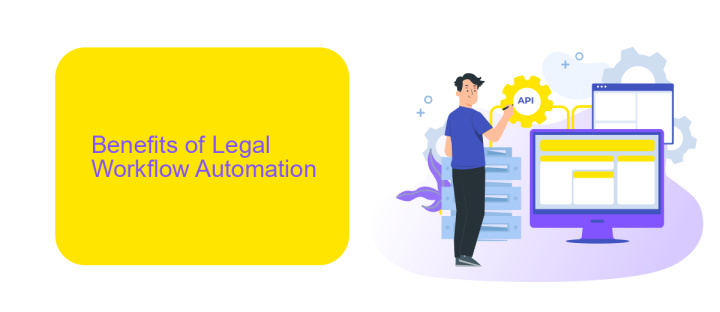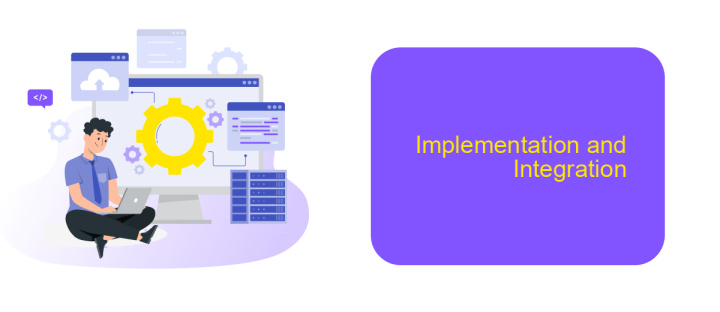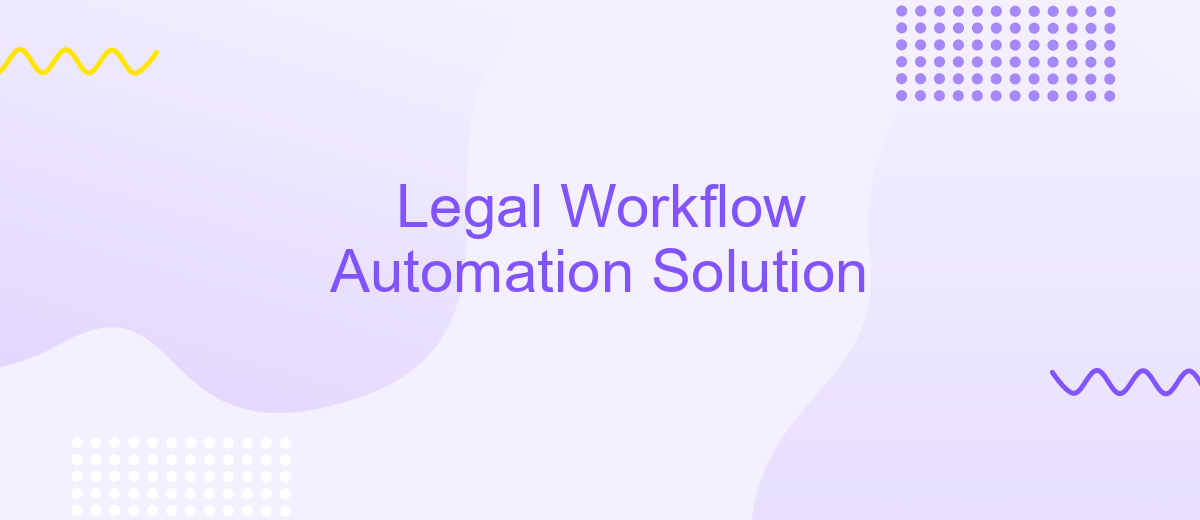Legal Workflow Automation Solution
In today's fast-paced legal environment, efficiency and accuracy are paramount. Legal workflow automation solutions streamline repetitive tasks, reduce human error, and enhance productivity. By leveraging advanced technologies, these systems enable legal professionals to focus on higher-value activities, ensuring better client service and improved outcomes. Discover how automating your legal workflows can transform your practice and drive success in a competitive market.
Introduction
Legal Workflow Automation Solution is revolutionizing the way legal professionals manage their daily tasks. By automating repetitive processes, legal teams can focus on higher-value activities, thus increasing productivity and reducing the risk of human error. This technology is not just a luxury but a necessity in today’s fast-paced legal environment.
- Streamlined document management
- Automated case tracking
- Efficient client communication
- Enhanced compliance and reporting
Integration with various tools and platforms is crucial for the seamless operation of a legal workflow automation solution. Services like ApiX-Drive facilitate these integrations, enabling legal teams to connect different software applications effortlessly. This ensures that all systems work in harmony, providing a unified and efficient workflow. By leveraging such integrations, legal professionals can achieve a more cohesive and productive work environment.
Benefits of Legal Workflow Automation

Legal workflow automation streamlines repetitive tasks, reducing the time and effort required for document management, client communication, and case tracking. By automating these processes, law firms can significantly enhance productivity and focus on more complex legal work. This leads to improved accuracy, as automated systems minimize human errors, ensuring that all legal procedures are followed meticulously. Additionally, automation tools provide real-time updates and notifications, keeping all stakeholders informed and aligned.
Another significant benefit is the seamless integration of various legal software and tools. Services like ApiX-Drive facilitate the integration of multiple applications, allowing for a unified workflow. This means that data from different sources can be synchronized effortlessly, enhancing the efficiency and accuracy of legal operations. Moreover, automated systems can handle large volumes of data, making it easier to manage and retrieve information when needed. Ultimately, legal workflow automation not only saves time and reduces costs but also enhances the overall quality of legal services provided.
Key Features of a Legal Workflow Automation Solution

Legal workflow automation solutions can significantly streamline the operations of legal firms by automating various repetitive and time-consuming tasks. Implementing such a solution can lead to increased efficiency, reduced errors, and improved compliance with regulatory requirements.
- Document Automation: Automatically generate, review, and manage legal documents, reducing the time spent on manual document creation.
- Task Management: Assign, track, and manage tasks with ease, ensuring that all legal processes are completed on time and within scope.
- Client Management: Maintain comprehensive client records and streamline client communications, enhancing client satisfaction and relationship management.
- Integration Capabilities: Seamlessly integrate with other software solutions such as ApiX-Drive to automate data transfer and synchronize information across platforms.
- Compliance Tracking: Monitor and ensure compliance with legal standards and regulations, minimizing the risk of non-compliance.
By leveraging these key features, legal firms can optimize their workflows, improve productivity, and deliver better services to their clients. The integration capabilities, particularly with services like ApiX-Drive, further enhance the efficiency and effectiveness of legal workflow automation solutions.
Implementation and Integration

Implementing a Legal Workflow Automation Solution requires a structured approach to ensure seamless integration with existing systems. The first step involves a comprehensive analysis of current workflows and identifying areas that can benefit from automation. This helps in setting clear objectives and expectations for the solution.
Integration is a critical aspect, as it ensures that the new system works harmoniously with existing tools and software. Utilizing integration platforms such as ApiX-Drive can significantly simplify this process. ApiX-Drive allows for easy connection between various applications, ensuring that data flows smoothly and processes are streamlined.
- Analyze existing workflows and identify automation opportunities.
- Set clear objectives for the automation solution.
- Utilize integration platforms like ApiX-Drive for seamless connectivity.
- Test the integrated system thoroughly before full-scale implementation.
After the initial setup, continuous monitoring and optimization are essential to ensure the system's efficiency and effectiveness. Regular updates and feedback loops help in adapting the solution to evolving needs and maintaining optimal performance.
Case Studies and Success Stories
One of our notable success stories involves a mid-sized law firm that struggled with manual document management and client communication processes. By implementing our Legal Workflow Automation Solution, they were able to streamline their operations significantly. The automation of repetitive tasks reduced the time spent on administrative duties by 40%, allowing their legal professionals to focus more on client cases. This transformation not only improved their efficiency but also enhanced client satisfaction due to faster response times and more organized case handling.
Another compelling case study features a large corporate legal department that needed to integrate various software tools for better data management. Utilizing ApiX-Drive, we seamlessly connected their existing CRM, email, and document management systems. This integration enabled real-time data synchronization and minimized the risk of errors. As a result, the legal department reported a 30% increase in productivity and a significant reduction in compliance risks. These success stories highlight the transformative impact of our Legal Workflow Automation Solution in diverse legal settings.
FAQ
What is Legal Workflow Automation?
How can automation improve legal workflows?
Is it difficult to integrate automation into existing legal systems?
What are the security concerns with legal workflow automation?
Can small law firms benefit from legal workflow automation?
Apix-Drive is a universal tool that will quickly streamline any workflow, freeing you from routine and possible financial losses. Try ApiX-Drive in action and see how useful it is for you personally. In the meantime, when you are setting up connections between systems, think about where you are investing your free time, because now you will have much more of it.

